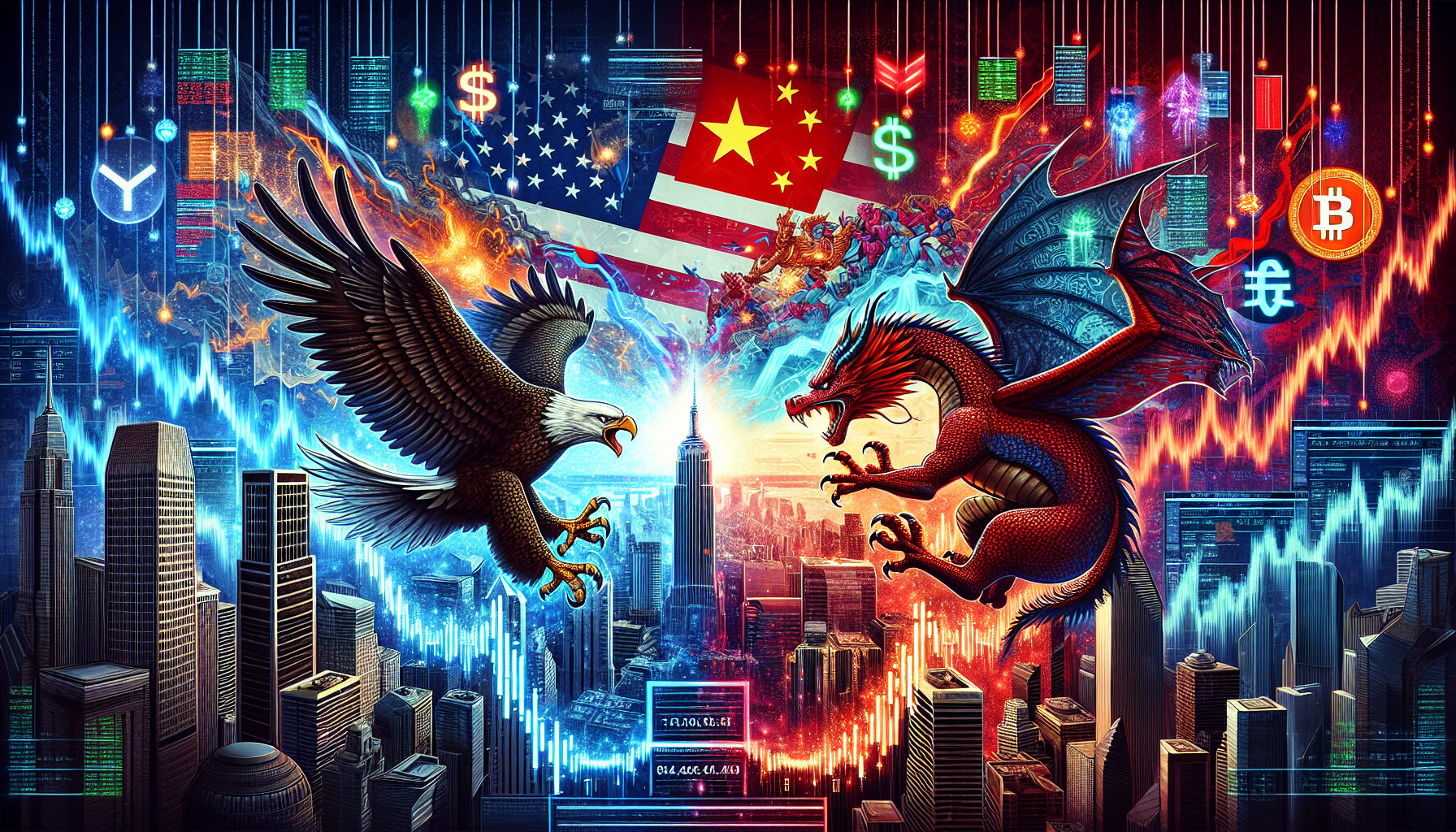The trade war between the United States and China, in addition to directly affecting global trade and traditional markets, also influences the crypto asset market in several ways. Below are 7 important impacts that this type of conflict can have on the cryptocurrency world:
Key Points
1. Increased demand for alternative assets
During periods of global economic tension, investors look for assets not directly tied to government and central bank policies. Cryptocurrencies—especially Bitcoin—gain prominence as a type of “digital safe haven,” similar to gold. In times of uncertainty between the world’s largest powers, demand for Bitcoin tends to rise.
With the dollar and the yuan under political and economic pressure, many investors see Bitcoin as an alternative store of value. This can drive the appreciation of the digital currency, especially when trust in the fiat currencies involved in the conflict weakens.
The imposition of tariffs and trade retaliation can destabilize local currencies, especially the yuan. When this happens, Chinese citizens, for example, may turn to Bitcoin to protect their capital, which tends to increase trading volumes in the affected regions.
In scenarios of trade conflict, such as the one between the US and China, capital outflow restrictions often increase. In such cases, cryptocurrencies like Bitcoin and Ethereum become an efficient alternative for transferring value across borders, stimulating their use by individuals and companies looking to bypass those restrictions.
The intensification of economic rivalry between the two nations may lead to stricter capital control measures and increased regulatory pressure, both in the US and China. This can affect the operation of exchanges, complicate international transactions, and impact access to crypto assets in certain regions.
Both China and the US are in advanced stages of developing their state-backed digital currencies. The trade war accelerates this process, as countries seek more control over their economies and greater independence from international financial systems. In the medium term, this may change the way countries handle digital money and influence the crypto asset market overall.
The dispute between two superpowers highlights the importance of decentralized financial systems. DeFi (decentralized finance) projects become more appealing to users who want to avoid political interference and trade barriers, boosting the development and adoption of this sector within the crypto ecosystem.
Conclusion:
The trade war between the US and China doesn’t just affect traditional commerce—it also opens the door for significant shifts in the crypto asset market. It drives the adoption of digital currencies as economic protection, accelerates innovation in decentralized financial solutions, and reinforces the value of cryptocurrencies as an alternative in an increasingly polarized global economy.

bt80ad